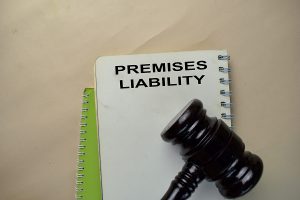Four Ways To Reduce Premises Liability On Your Property
 Michael Babboni
Premises Liability
Premises liability is a legal action that every property owner—whether home or commercial—has to worry about potentially. This is a legal concept that says someone who owns property should take reasonable precautions to ensure a safe environment. Suppose there is a risk of danger to visitors on that property, and the owner ignores the threat. In that case, they become legally and financially responsible for any injuries that arise from neglecting that risk.
Michael Babboni
Premises Liability
Premises liability is a legal action that every property owner—whether home or commercial—has to worry about potentially. This is a legal concept that says someone who owns property should take reasonable precautions to ensure a safe environment. Suppose there is a risk of danger to visitors on that property, and the owner ignores the threat. In that case, they become legally and financially responsible for any injuries that arise from neglecting that risk.If you want to ensure that your home or business meets these minimum legal requirements, here are three things you can do to reduce your legal exposure immediately.
Ensure Safe Movement
The “slip and fall” is, by far, the most common form of premises liability that property owners get sued for. As the name implies, this happens when something on the property could cause a visitor to slip, then fall, and subsequently sustain an injury. Slip and falls can occur in several ways, including:
• Poor or unlit stairwells where visitors can’t see the steps
• Uneven/crooked floors or stairs
• Power cables strung along floors
• Slippery fluids, such as motor oil, left uncleaned
To address this, diligence and maintenance are essential. Keep travel areas clear, unobstructed, and well-lit. When spills occur, get them cleaned as quickly as possible.
Control Swimming Pool Access
Florida’s mild weather means that many homeowners can enjoy pool usage all year round, making pools at some homes much more common than in other states. However, children and others drowning in pools is a regular occurrence and is often cited as a reason for child injury.
To avoid premises liability due to injury at pools, this often means two things. When children are using a swimming pool, there should always be an adult supervising the activities. The majority of child drowning accidents occur when there is no adult to intervene.
The other precaution is to ensure proper fencing around the pool. A property owner can still be sued for premises liability, even if it’s children sneaking onto a property to use a pool. This is known as an “attractive nuisance,” and it means that a fence or some other measure should be made to dissuade children. Making pool access easy counts as premises liability.
Restrain Animals
While everyone loves pets, dogs can, with the wrong disposition or interpretation of a situation, become dangerous. Animal and property owners are always responsible for any animal attacks that occur on their property. If you own a dog that is prone to aggression, always ensure that visitors can’t interact with the animal.
Control Contagion
Now more than ever, people are aware of the disease transmission in buildings. Property owners that don’t take precautions to mitigate disease transmission can be guilty of premises liability. This is especially true if the building is inherently “sick,” such as having asbestos in the walls that can cause cancer or having mold, which can lead to cardiovascular and even respiratory or neurodegenerative disorders if visitors spend too much time there.
The courts do not expect property owners to account for every emergency and contingency. But they do expect some reasonable precautions to be taken, and if you can’t do even that, a lawsuit may arise.
